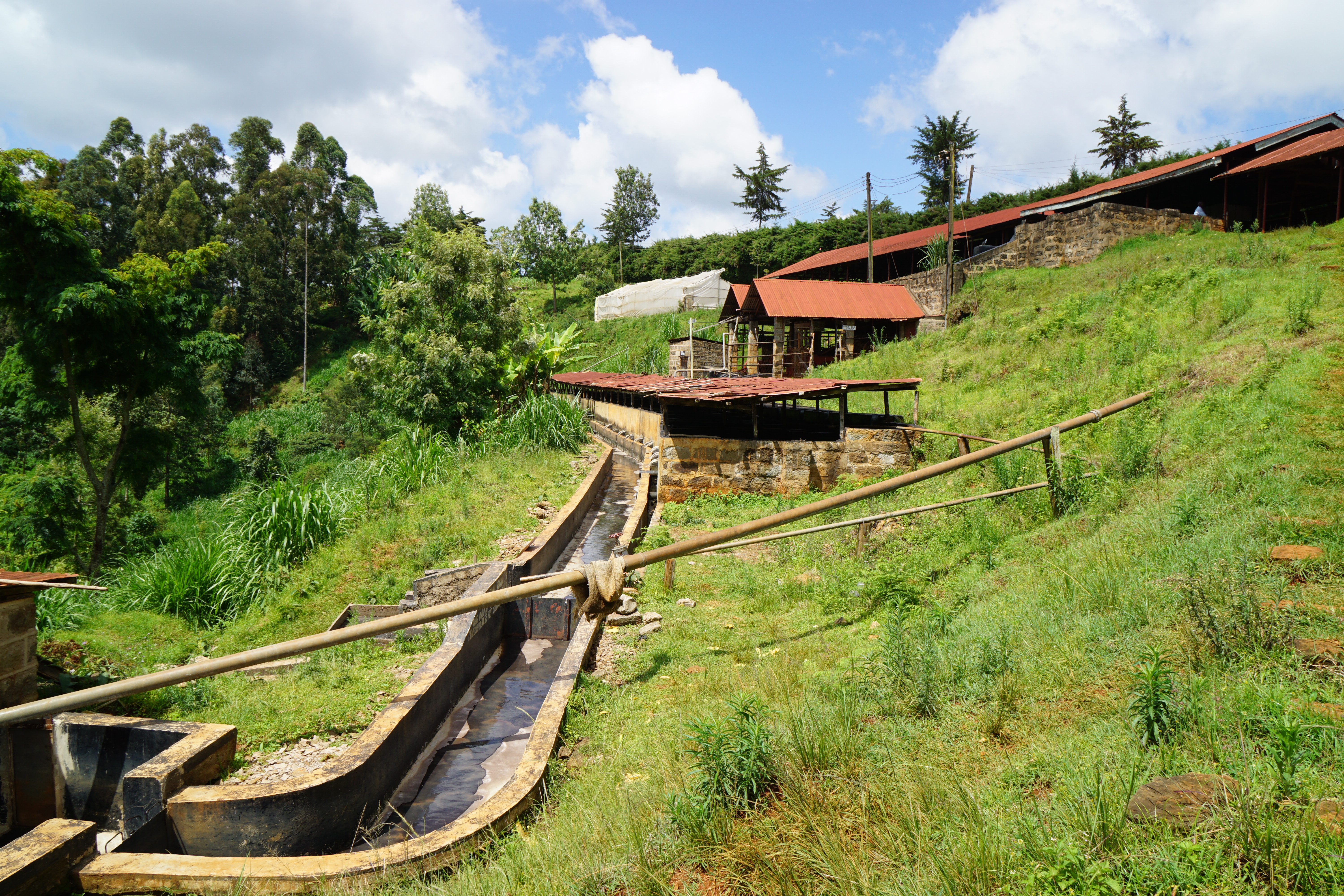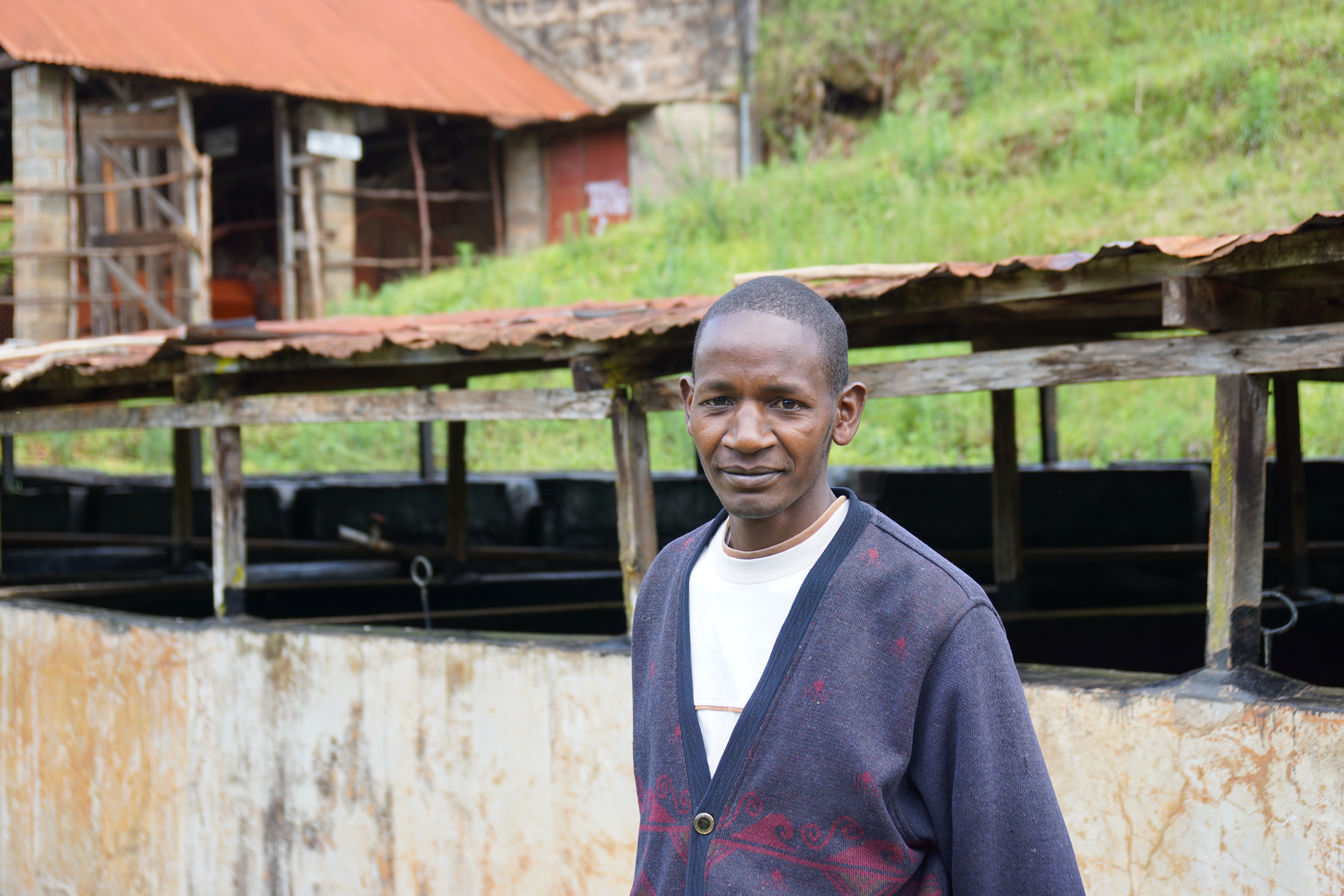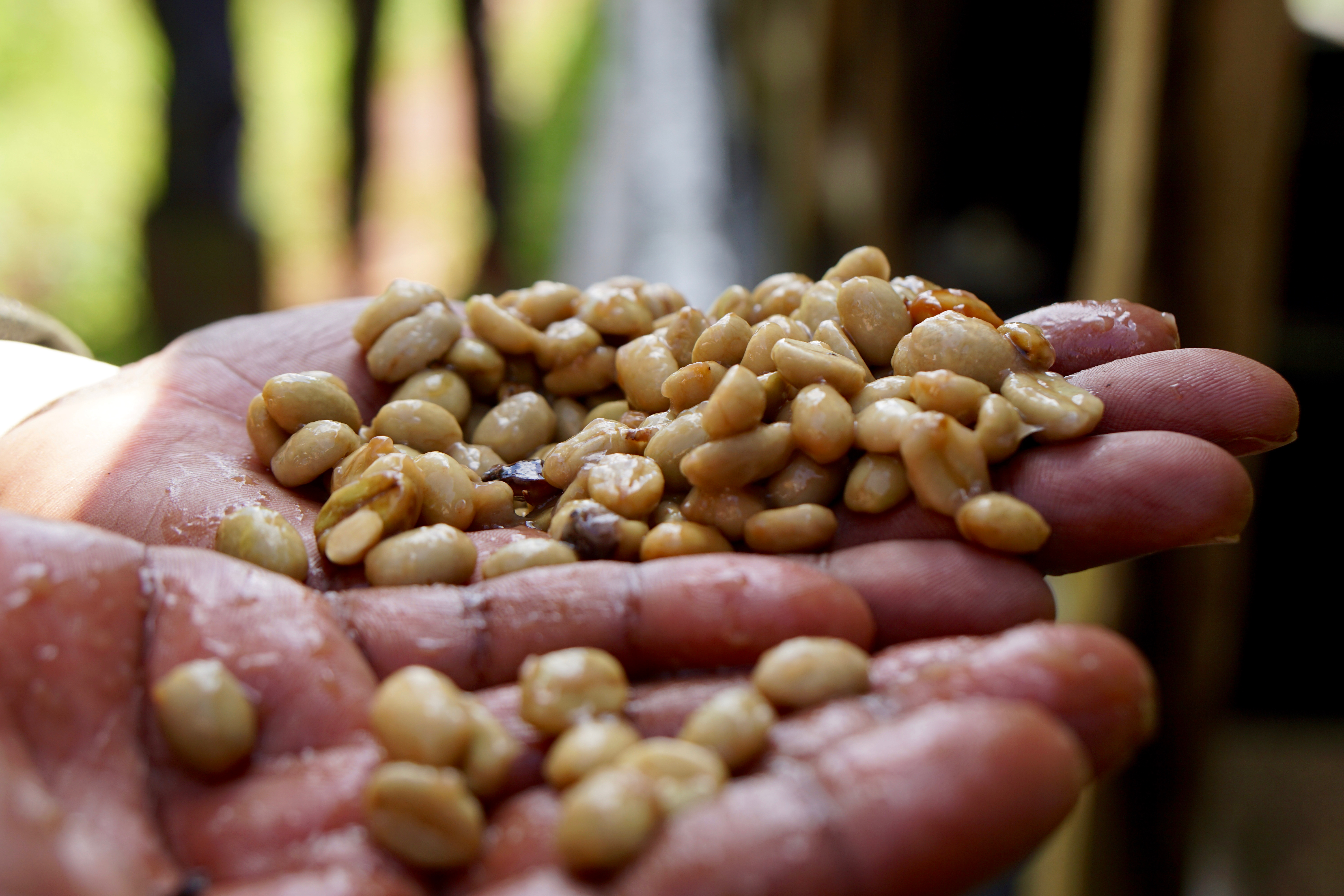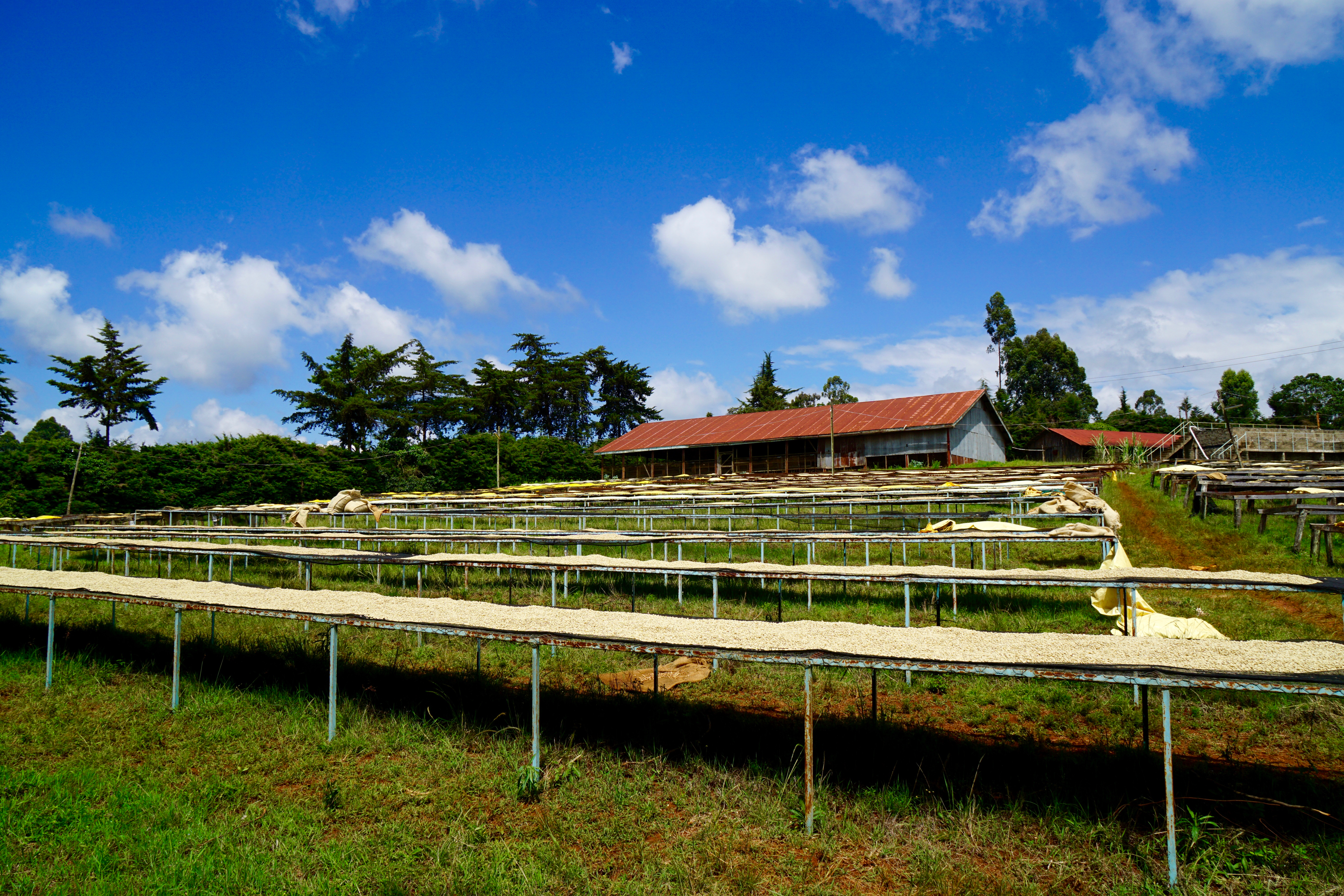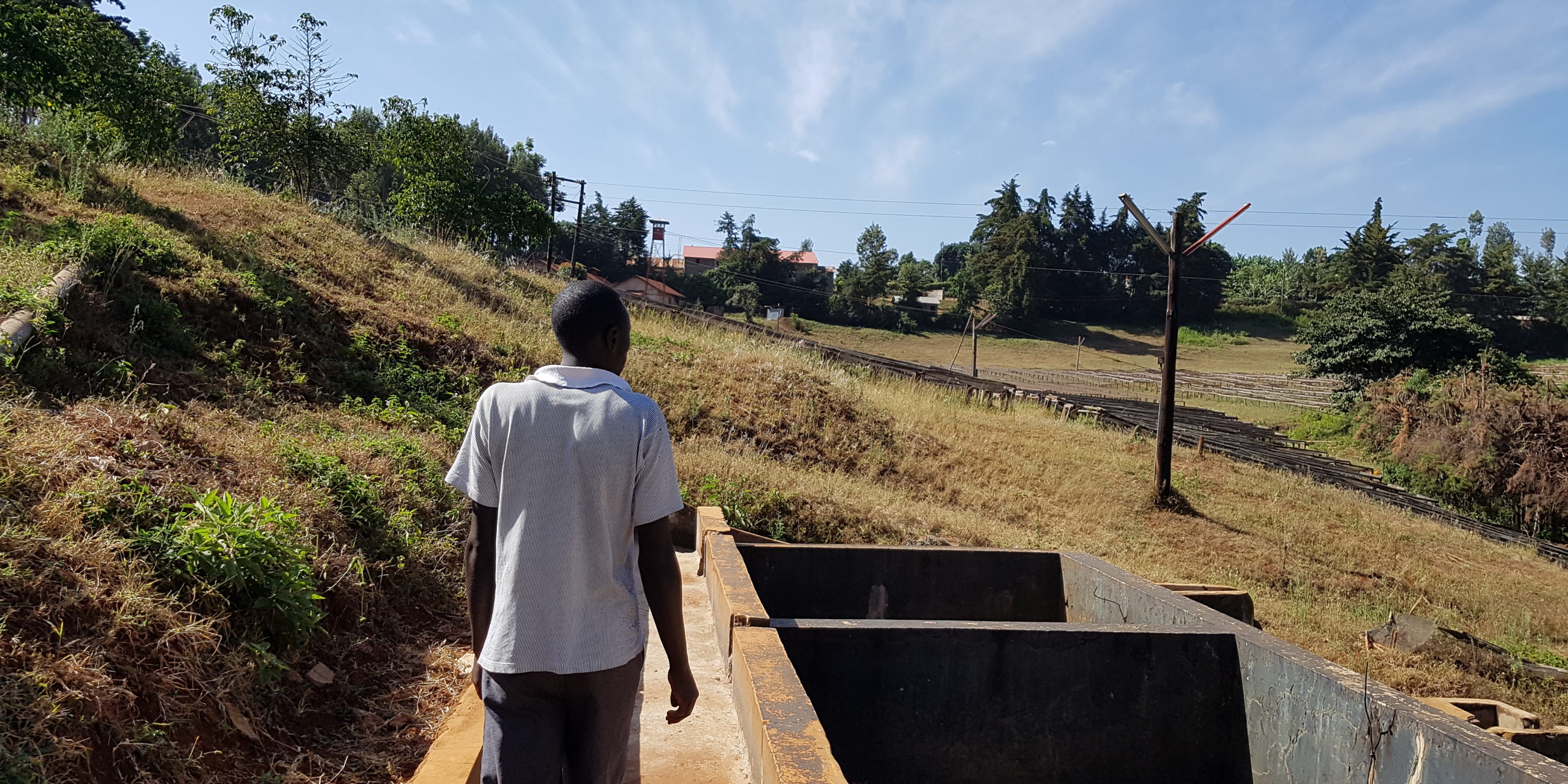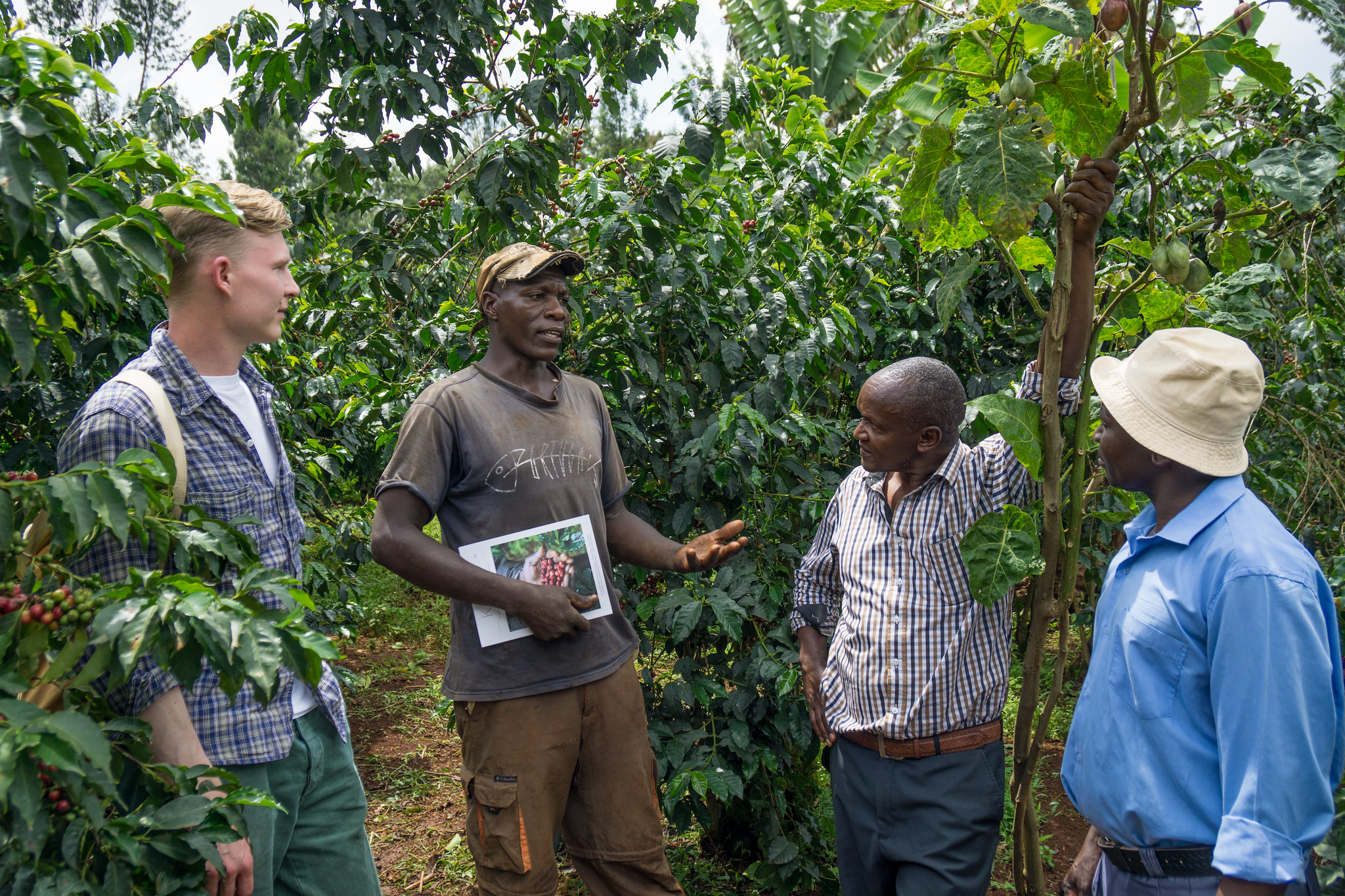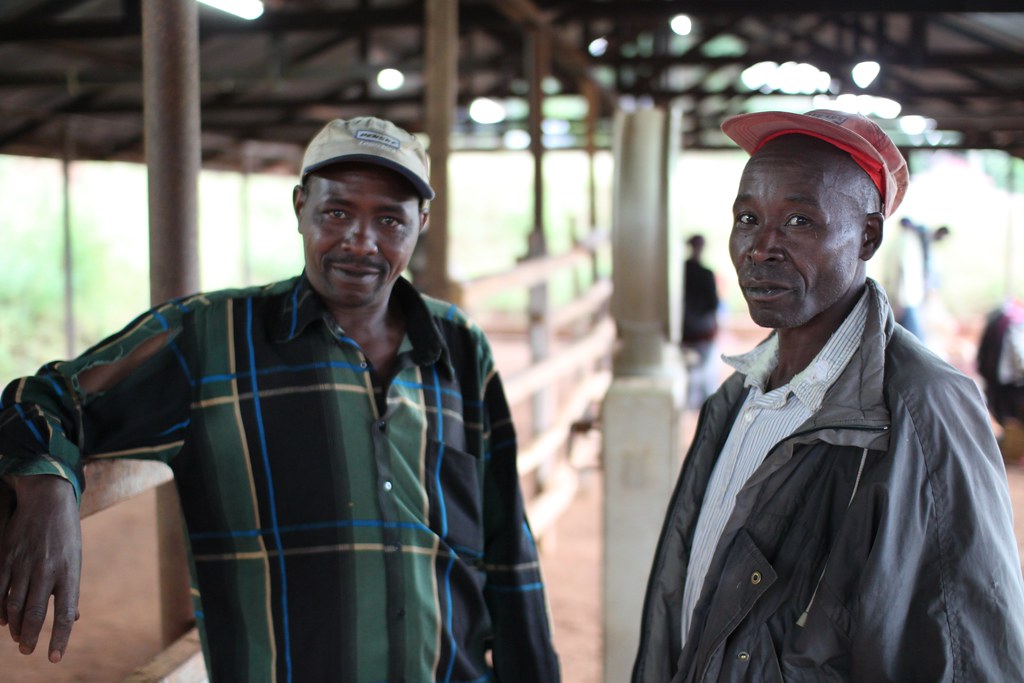Ephraim Maina Muthee is the factory manager at Karogoto. There’s around 1.200 active members with some of them coming from 3-4 kilometers away. For that reason Karogoto also have another collecting station with a scale and clerk for bookkeeping, to make it easier for members to deliver cherries closer to their farm.
Ephraim is a young and cool guy and a great host. He was very honest in talking about his experiences with fluctuating prices and how direct sales are important to the income of the farmers. Last year (the 2014/15 harvest) the Karogoto members received kes 64.40/kg cherry, 13/14 it was kes 54.00/kg cherry but only kes 37.00 the year before that. With an average cost of kes 20/kg cherry for a farmers, that’s dangerously low.
Karogoto only have one set of washing tanks, where Kieni has two. The process is pretty much the same, though, but the intermediate washing have to be done in the same tank here. When we visited the mill there was a good amount of coffee in the fermentation tanks and it smelled amazing! Often the smell is a little bad, like a white wine gone bad or a little like vinegar. This smelled incredibly fresh though, reminding us of elderflowers.
As mentioned the coffee is moved by pumps to the drying tables. Karogoto boasts a number of metal drying tables, which all mill managers dream about. They require a lot less maintenance and don’t fold over time like the woodens ones, causing improper drying. They are expensive though, so in most mills you still see a mix of metal and wood.
I hope to be back at Karogoto next week, when I’ll be back in Kenya tasting the results of this years harvest.
Read more about my entire origin trip to Kenya and check out all the pictures from Karogoto on Flickr
Related stories
Would you like to get our different coffees delivered directly to your doorstep? We've got you covered.
Address
Coffee Collective
Godthåbsvej 34B
2000 Frederiksberg
CVR: 30706595
Contact
mail@coffeecollective.dk
+45 60 15 15 25 (09.00-15.00)
Coffee and cookies
This site uses cookies.
Find out more on how we use cookies.
